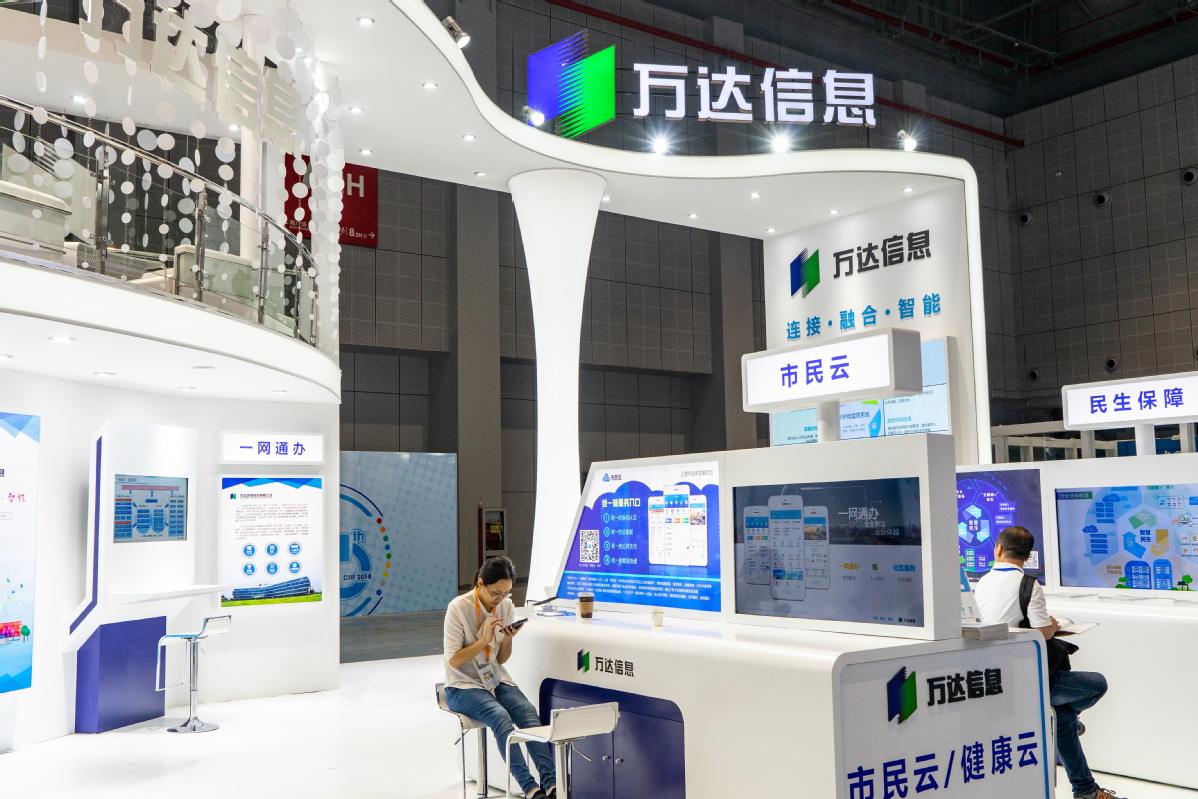'Operation' next keyword in building smart cities in nation
By ZHENG YIRAN | China Daily | Updated: 2021-07-14 09:46

Report: Development of sector should focus on improving people's livelihoods
The focus of China's smart city development in the new era has shifted from project construction to long-term operations, and the integration of construction and operations, construction of a value ecological chain, innovation of operation mechanisms, and professional operations have become a new trend, a recent report said.
The report, jointly released by the State Information Center Smarter City Development and Research Center and Shanghai-based Wondersgroup, said China's smart city development should begin with those ends in mind and be based on improving people's livelihoods.
To enhance the smart city operating plan, China should explore a long-term operational mode based on local conditions, reinforce professional operations, strengthen the exploration of the value-added model of data elements and guide the development of the operational index system, the report said.
"China has been exploring smart cities for 12 years, and the country's 14th Five-Year Plan (2021-25) mentioned many intelligent digital operation scenarios," said Shan Zhiguang, director of Information and Industrial Development Department of State Information Center and also director of the State Information Center Smarter City Development and Research Center.
Hu Hongwei, vice-chairman and president of Wondersgroup, said: "Currently, China's smart city development faces the major problems of requiring huge investment in software and hardware, and the public's happiness level is low. The key issue is operation. The government and industry levels lack guidance in operation, and there are not many smart city operation organizations locally."
To demonstrate how smart cities should be operated, the report analyzes good examples of smart city operation in China. Suishenban, a one-stop local government affairs service app jointly developed by Wondersgroup and the Shanghai government, is the country's first "internet plus" city service platform with over 10 million registered users.
Currently, there are over 58 million registered users on Suishenban, and the platform offered more than 1,380 governmental services and over 370 e-certifications, which enabled the public to handle affairs without carrying paper documents. The platform is exploring new modes, such as personal digital cards and contactless travel within the Yangtze River Delta city clusters, to improve people's livelihoods.
Another example is the Tianfu Citizen Cloud, which was developed by Wondersgroup and the Chengdu municipal government. With over 10 million registered users, the platform is based on the public's real needs, and offers public services related to healthcare, food, travel, living, work, sickness and death. The platform increases the city's governance level by offering better services. Based on industrial transformation and upgrades, the platform empowers digital industrialization.
"The most important word for China's smart city development during the 14th Five-Year Plan period is operation. It should be clarified who is operating the smart city, and who is building a sustainable mechanism," Shan said.
He noted that apart from the government, enterprises and industries should be active players, and China's smart city construction should become a real industry and a main driving force of the country's domestic circulation.
Hu said that government-enterprise joint operation is a suggested mode of smart city operation, as it combines both parties' advantages and is relatively easy to start.
"The government-enterprise joint operation mode is increasingly favored by cities. Through established joint ventures, the mode effectively ensures the sustainable development of a city platform. It takes full advantage of resources from the local government, society, businesses and media, joining efforts from the government and enterprise to benefit the public," he said.
In terms of operation, the report also suggested that safe operation is the premise. A high-quality, professional safety maintenance team should be established to build up and implement a strict information security system.
In addition, the operation of smart cities should center on users. Based on user needs, from the front stage to the backstage, the platform should constantly sort out the needs, optimize business and provide more convenient services for people and enterprises.
The platform should take advantage of data by actively accumulating service data, creating user portraits and offering personalized services. In this way, smart cities are able to empower social governance and industrial development, said the report.
























